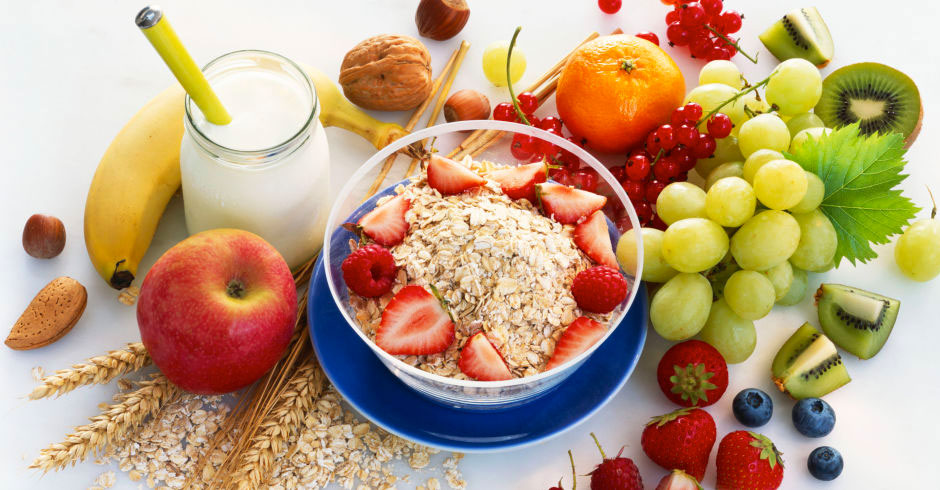Diet & Endometriosis
May 4, 2017
In a recently published review paper in Ginekologia Polska, Jurkiewicz-Przondziono et al. have summarized their literature findings. Scientific evidence shows that diet and lifestyle may influence inflammation in the body, estrogen activity, menstrual cycle and prostaglandin metabolism. The team listed seven food groups, and by incorporating results of literature search they present the impact of these groups on developing endometriosis by indicating the research types, group size, study results, and level of evidence.
Key Points
Highlights:
- Modifiable risk factors for prevention of endometriosis could be accessible and easy to implement thru diet
- Understanding the role of nutrition in endometriosis
Importance:
- Past studies have produced controversial results
- There are no clear correlations between certain foods and the risk of endometriosis
Key results:
- Increased number of fruit portions could be key in increasing risk for endometriosis because of increased sugar intake
- For every 1% energy coming from the Omega-3 fatty acids, endometriosis risk decreases by almost 50%. But blood phospholipid levels are not a risk factor for the disease.
- Consumption of ham, beef and other kinds of red meat is considerably connected with higher endometriosis risk.
- Case-control studies in Japan, where soy is commonly consumed demonstrated a significant correlation between the occurrences of endometriosis.
- Milk and low-fat dairy consumption seem to lower endometriosis occurrence by 18% lower for women who consumed two or fewer portions per day. Also, women with a higher concentration of vitamin D had 24% less risk than women with lower levels of this vitamin.
- Alcohol consumption appears to be a potential risk factor, but there are conflicting study results.
- Reports are contradictory when it comes to coffee and caffeine
What’s done here?
- Results of literature research have been incorporated into a review to present tables showing research types, group size, study results, and level of evidence
Lay Summary
Diet and the risk of developing endometriosis
Current studies examining the modifiable risk factors for prevention of endometriosis are pointing to the development of effective dietary restrictions. Thus understanding the role of nutrition in endometriosis has become critical.
In a recently published review paper in Ginekologia Polska https://journals.viamedica.pl/ginekologia_polska/article/view/47748, Jurkiewicz-Przondziono et al. at the Medical University of Silesia, Poland have summarized their literature findings. The team listed seven food groups and their impact on developing endometriosis.
Jurkiewicz-Przondziono et al. suggested that there are no clear correlations between certain foods and the risk of endometriosis; they also have underlined the need for further research to understand the nutritional influence on the risk of developing the disease.
Although immune, endocrine, genetic, and anatomical disorders have been indicated as risk factors, the disease etiology is still not clearly understood. Since the average cost of treatment per patient is also a concern, increasing attention is directed to additional treatments and prevention.
Scientific evidence shows that diet and lifestyle may influence inflammation in the body, estrogen activity, menstrual cycle and prostaglandin metabolism. It is known that high levels of estrogen may be a risk factor and research has demonstrated a link between diet and incidence of estrogen-dependent diseases. An assumption can be made regarding the dietary impact on blood estrogen levels may play a role in the etiology of endometriosis. The effect of chemical compounds such as polychlorinated biphenyls (PCBs) consumed along with food due to bioaccumulation shouldn’t be overlooked. Chlorinated hydrocarbons can also be counted as risk factors.
-
Fruits, vegetables, and dietary fiber
In a case-control study in 2004, it was shown that the risk of the disease was significantly reduced in women who consumes large amounts of green vegetables and fresh fruit. In contrast, another case-control study in 2011 it was observed that the increased number of portions of fruits consumed daily was connected with the higher risk of endometriosis, but no connection with vegetable consumption. Studies are reporting that consumption of dietary fiber is linked with higher endometriosis risk. -
Fish oils and polyunsaturated fatty acids
The largest study regarding fat consumption and endometriosis risk was conducted in the USA. Palmitic acid, trans-unsaturated fatty acid is linked to the risk of developing endometriosis, in contrast, Omega-3 fatty acids decreased the risk. For every 1% energy coming from the Omega-3 fatty acids, endometriosis risk decreases by almost 50%. But blood phospholipid levels are not a risk factor for the disease. -
Red meat
It is shown that consumption of ham, beef and other kinds of red meat is considerably connected with higher endometriosis risk, it seems that consuming butter has no correlation. -
Soy and phytoestrogens
The connection between endometriosis and estrogen levels, consumption of soy or phytoestrogens, in general, can be connected with the higher risk of disease development. Case-control studies in Japan, where soy is commonly consumed demonstrated a significant correlation between the occurrences of endometriosis. -
Dairy products and vitamin D
Milk and low-fat dairy consumption were found to be linked to lower risk endometriosis occurrence; 18% lower for women who consumed two or fewer portions per day. Also, women with a higher concentration of vitamin D had 24% less risk than women with lower levels of this vitamin.
-
Alcohol consumption
Alcohol consumption appears to be a potential risk factor, but there are conflicting study results.
-
Coffee and products containing caffeine
Reports are contradictory when it comes to coffee and caffeine.
Detailed tables for the listed nutrients, studies, and levels of evidence can be found at the link above.
Reference
- Influence of diet on the risk of developing endometriosis.
- Jurkiewicz-Przondziono J, Lemm M, Kwiatkowska-Pamuła A, Ziółko E, Wójtowicz MK.
- Ginekol Pol. 2017;88(2):96-102. doi: 10.5603/GP.a2017.0017.
- PMID:28326519
Research Source: https://journals.viamedica.pl/ginekologia_polska/article/view/47748
Diet Endometriosis

